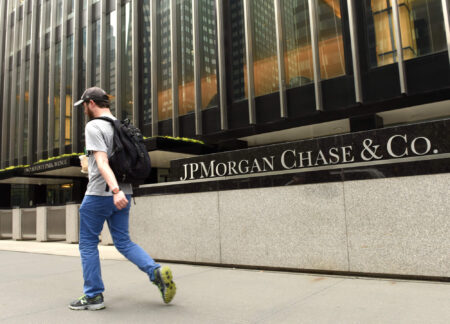The long-standing battle for the first spot-based Bitcoin ETF is soon coming to an end. A US court ruled in the case of Grayscale against the SEC that the agency's categorical rejection of a spot-based fund is to be deemed arbitrary and unlawful, marking a landmark victory for the US crypto industry.
A three-member appellate panel in Washington D.C. overturned the decision of the US Securities and Exchange Commission (SEC), which had previously thwarted Grayscale's efforts to launch a spot-based Bitcoin ETF. The fund would have been tied directly to the cryptocurrency's spot price, as a conversion of the existing Grayscale Bitcoin Trust (GBTC). The verdict signifies not only a groundbreaking legal triumph for Grayscale but also for the entire US crypto sector. While the SEC retains the option to challenge the court's decision, the judges' strong wording suggests a finalized judgment.
A Bitcoin ETF poised to unleash billions in capital
The Grayscale Bitcoin Trust (GBTC) is a financial product that enables investors to participate in Bitcoin's price movement without directly owning or managing the cryptocurrency. GBTC offers investors shares that can be bought and sold on the secondary market. As Grayscale lacks SEC approval for exchange trading, the Trust's shares are classified as restricted securities. Consequently, the Trust's shares can only be traded among accredited investors and via over-the-counter (OTC) markets.

According to Grayscale, the company cannot offer continuous redemptions and creations of shares like those possible with exchange-traded products (ETPs or ETFs). As a result, shares of Grayscale products trade at a discount, at times reaching up to 50%. The crypto conglomerate estimates the lost value for investors to be over $4 billion USD. Notably, the Trust manages $17.4 billion USD in Bitcoin, representing roughly 3.4% of the cryptocurrency's total supply. By denying the conversion of the Grayscale product into an ETF, the SEC, according to the provider, harms thousands of institutional investors.
US court criticizes arbitrary actions of the SEC
The SEC argued that a spot-based Bitcoin ETF lacks the necessary regulatory mechanisms to prevent fraudulent activities. Nonetheless, in October 2021, the regulatory agency approved several products based on derivative contracts from the CME Exchange. As a response, Grayscale filed a lawsuit against the SEC in July 2022, claiming that the agency treated two similar products differently, which contradicts US laws. The appellate panel unanimously agreed with this assertion.
"In denying Grayscale's [application], the Commission failed to adequately explain why it permitted the listing of two Bitcoin futures ETPs but not the similar Bitcoin ETP proposed by Grayscale. Absent such an explanation, the unequal treatment of similar products is arbitrary and capricious." - Court decision in the case of Grayscale against the SEC
Grayscale clearly demonstrated a 99.9% correlation between Bitcoin's spot and derivative markets. This correlation is based on the logical and mathematical connection between the spot and derivative market. The crypto conglomerate presented substantial evidence that Grayscale's product is similar to the approved futures ETFs under relevant statutes. Therefore, all three judges decided that the SEC must reevaluate Grayscale's conversion application. While the ruling doesn't automatically convert the Trust, the probability of approval for the first spot-based ETFs from providers like BlackRock & Co. received a significant boost.








